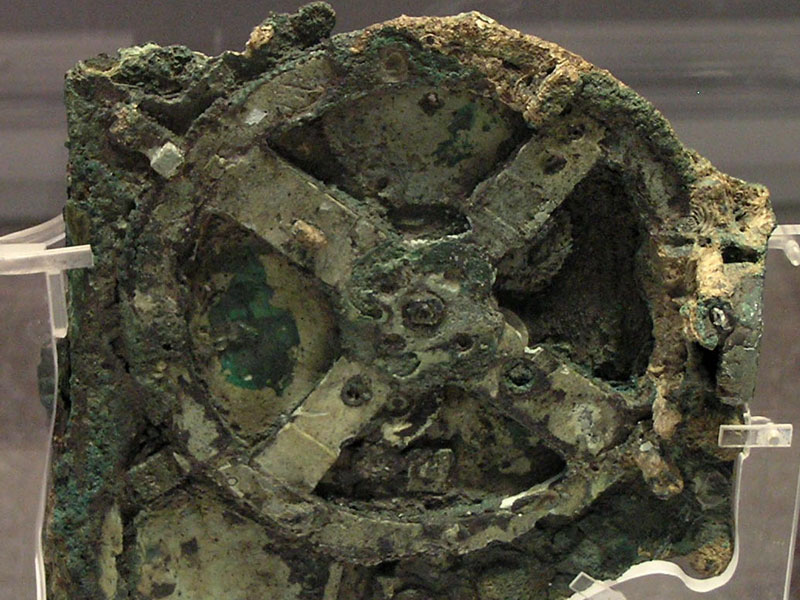What I find difficult is that without being well-schooled in the area under contention (anthropology, geology, etc.) it's very hard to say whether the mainstream scientists or what have you, are ignoring the artifact because they know that it's a hoax of some kind, that they're ignoring it because the assume it's a hoax without actually looking and finding out, or if it's because it would upset some balance of who they are, for example, totally revolutionizing the science that they've spent their lives becoming versed in...
There's a few books that write about things like the relationship between Orion's belt and the Giza pyramids. One of them details places all over the world where ancient buildings seem to correspond with constellations. This could be accurate research and it could not be, I don't know. But I took this book and showed it to a professor of mine, a fairly famous Russian astronomist, physicist, etc., who the book had actually quoted. He borrowed it for a weekend and then returned it to me and said that it was a book with some very interesting ideas but that ultimately, much of the science was simply incorrect, as apparently, it had been written by journalists making suppositions, not scientists who knew how to accurately obtain and analyze the data.
Very frustrating. Here's a quote, that I think applies, from Richard Feynman, one of the Manhattan Project physicists, and a super cool guy who did a lot of work with early theoretical quantum physics, superstring theory, etc.
"Because of the success of science, there is, I think, a kind of pseudoscience. Social science is an example of a science which is not a science; they don't do [things] scientifically, they follow the forms-or you gather data, you do so-and-so and so forth but they don't get any laws, they haven't found out anything. They haven't got anywhere yet-maybe someday they will, but it's not very well developed, but what happens is on an even more mundane level. We get experts on everything that sound like they're sort of scientific experts. They're not scientific, they sit at a typewriter and they make up something like, oh, food grown with, er, fertilizer that's
organic is better for you than food grown with fertilizer that's inorganic-may be true, may not be true, but it hasn't been demonstrated one way or the other. But they'll sit there on the typewriter and make up all this stuff as if it's science and then become experts on foods, organic foods, and so on. There's all kinds of myths and pseudoscience all over the place.
I may be quite wrong, maybe they do know all these things, but I don't think I'm wrong. You see, I have the advantage of having found out how hard it is to get to really know something, how careful you have to be about checking the experiments, how easy it is to make mistakes
and fool yourself. I know what it means to know something, and therefore I see how they get their information and I can't believe that they know it, they haven't done the work necessary, haven't done the checks necessary, haven't done the care necessary. I have a great
suspicion that they don't know, that this stuff is [wrong] and they're intimidating people. I think so. I don't know the world very well but that's what I think."
~~~
Just in case I seem like I'm being a party pooper, I'd like to say in my defense that I actually really like this stuff. I love these non-mainstream ideas and interpretations about history and science, and I think that very often, the old school, big names in fields, need to loosen up and be able to accept that what they were taught is incorrect, in some cases, wildly so. I just wanted to express my frustration about not knowing whether or not I was a sucker to believe this stuff or a sucker not to.


 Follow the links...
Follow the links...

